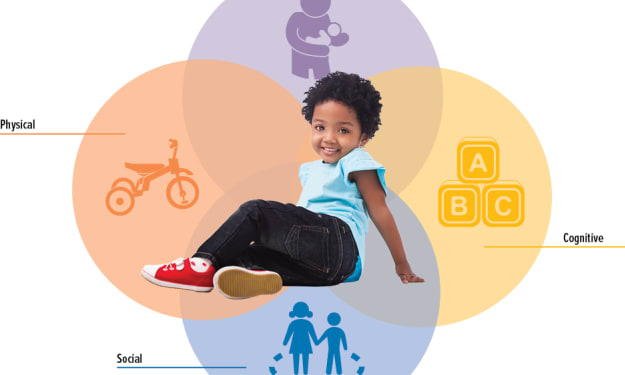
Talking with your child is a daily event. But, let’s face it, as parents we are busy and it is easier to keep the conversation with our children light so we can move on to the next thing on our “to-do” list. There’s a place in International Schools in Bangalore for light conversation in daily life but there are also those times when your child needs for you to tune in and listen more deeply.
Your child won’t tell you this but he or she needs for you to probe into their inner life on occasion to find out what they are thinking and feeling. Not only will this help them and you make more sense of their emotions but it will also strengthen your relationship with them. They will intuitively sense that you understand them better because you took the time and energy to really care.
Here are some ways of effectively communicating with our little ones:
1. Make Eye Contact
In International Schools in Bangalore when Every time you talk to your child or when your child is talking to you, maintain eye contact. Maintaining eye contact indicates that you are active and attentive in the conversation.
If you cannot hold eye contact, get on your knees or sit down, so your eyes are on the same level as his. This will encourage open and transparent communication.
2. Acknowledge Your Child’s Feelings
When you acknowledge someone’s feelings and emotions, they feel accepted and secured. This is precisely what happens when you empathise with your children. When you build empathy for your children, they themselves learn to be more sensitive and accepting towards other peoples’ feelings and emotions. Moreover, In International Schools in Bangalore when just by acknowledging their feelings, you as parents, are teaching them that their feelings are real and valid.
3. Rationalise The Correction
Having grown up in a joint family, I had many correctors and advisors around. Every time I would make a mistake, I was loaded with comments like ‘ stop behaving like this ‘ or ‘this is not how it is done’. Just asking to stop behaving in a particular manner is not enough to instil a new behaviour. What is essential is that a calm explanation should also be provided for it. Giving a composed explanation will help your child understand the implications of their behaviour for others (e.g. if your child teases another child for wearing glasses, explain to your child that wearing glasses helps the other child to see well. Also, International Schools in Bangalore remind your child kindly that teasing can hurt others feelings).
4. Teach Them How To Say ‘No’ Firmly
While parents say a ’no’ firmly to a child’s unrealistic request or unacceptable behaviour, it is of paramount importance to educate your children about doing the same in situations that make them uncomfortable. You should let them know that every ‘no’ is not a negative answer. Instead, International Schools in Bangalore it is more like a choice made to ensure their own safety and security.
5. Use More “Dos” Than “Don’ts”
International Schools in Bangalore will use more “Dos” than “don’ts” like “Don’t hit your sister”, “Don’t sit like that” don’t you say this too often to our little ones? You, as a parent know what you don’t want to happen, so you lead in with a “don’t” statement. Even though this statement would convey the message rightly of not doing a particular thing, but the downside of “don’t” statements is that you fail to promote the positive behaviour you want to see. Therefore you are more likely to reinforce the behaviour you don’t want. Instead, you should use more respectful “do” statements. Swapping your “don’ts” for “dos” can look like this: “Play gently with your sister”, “Please keep your back straight while sitting”
6. Use Kind Words
Kind words create a respectful relationship and better communication with your child. It is true that children who are spoken to with appreciation and respect also have better self-worth, which allows them to thrive. On the contrary, unkind words that shame or ridicule them leave them feeling disliked. International Schools in Bangalore they tell you with Some examples of kind words are:
“Thank you for helping me with the dishes.”
“You did a good job of getting your room clean.”
“That really makes me feel good.”
“I love you.”
7. Be An Emotional Coach
International Schools in Bangalore they say that the ability to listen is as important as the ability to speak. In doing so, you can develop an emotional bond essential for establishing and maintaining mutual respect. Effective emotional coaching helps children understand the emotional fluctuations of life. Children who grow up in families that spend time talking about emotions are more academically successful, have better friendships, fewer infectious diseases and can handle difficult social situations more effectively than children whose families do not talk about feelings.
Good communication is the heart of more harmonious homes and is the key to a healthy relationship with your child. It provides a place your child can thrive and grow from. Good communication with your child forms the basis of good communication with other people as your child grows into an adult.
8. Listen with your whole body
When you sense that your child needs to talk, give them your full attention. International Schools in Bangalore should Face them, make eye contact, kneel down to get on your child’s level if necessary – even tilt your head – to show that you are really listening.
9. Pick up on the emotion.
When your child has noticeable emotion in their words or in their body language, attend to that feeling. It’s often useful to make an observation or restate what you hear them say. This sends the message that you are taking them and their feelings seriously. For example, you might say, “You’re upset because I’m not letting you go outside to play after it's dark?” These reflective statements then allow your child to respond by affirming or clarifying what they are feeling and it will usually prompt more conversation.
10. Acknowledge your child’s feelings.
Empathy is one of the most powerful and comforting responses we can give to another person, especially a child. When you acknowledge those feelings, you validate them. This includes those feelings we often think of as “negative,” such as anger, frustration and disappointment. Often, acknowledgement of their feelings is all the child needs to begin dealing with the problem at hand. When you validate a child’s emotion you sensitise them to that emotion and give them permission to feel it and also acknowledge it in other people.
11. Delay correction and gather more information.
When your child is countering you, resist the urge to correct them immediately, even if you think they’re wrong. Hear them out before responding. Better yet, go an extra step by asking your child follow-up questions to learn more about why they see things as they do. This approach acknowledges your child’s feelings and gets them talking. You are likely to get more cooperation when you are willing to hear their concerns versus simply correcting them.
12. Try to see the situation through your child’s eyes.
Try to step into your child’s frame of reference before reacting. We often expect our children to understand adult-like ways of thinking and we don’t give consideration to how they might be thinking or viewing the situation. What developmental needs might they have in that moment that they can’t directly identify or ask for? For example, as you and your spouse are leaving the house for a much-needed night out, your child has an emotional meltdown in front of the babysitter because they don’t want you to leave. You could get upset, ignore your child’s behaviour, or you could ask yourself: What is my child trying to say right now; what need might they have that I should be attentive to? For example, is they're upset behaviour a plea for comfort, security, reassurance, or something else that you don’t understand? When you can see that certain behaviours are connected to their developmental needs, it is easier to be rational and patient with an appropriate intervention.
13. Avoid shaming your child; rather focus on behaviour.
Shaming a child diminishes their worth. For example, a 10-year-old boy knocks over his milk at dinner for the third time this week and his father explodes in anger saying, “You idiot, can’t you be more careful?” Over time, these instances of shame make the child feel defective. A better approach is to focus on the behaviour. Given the same situation, the father could say, “It’s okay. Let’s get a towel to clean it up; it’s just a mistake. Please ask for others to pass items to you at the table instead of reaching, okay?” A child doesn’t know how to correct being defective but in International Schools in Bangalore he can learn to correct his behaviour if given instruction in a supportive and encouraging way.
14. Encourage your child to think proactively about solutions.
When faced with a decision that you and your child disagree on, ask your child what he wants to happen or would like to change. In this International Schools in Bangalore helps them see that there are options to every problem. If they can come up with a reasonable approach to a problem, let them try it. When we encourage our children to become part of the solution, they often have greater motivation for resolving it.
Conclusion
In Harvest International School we make parents to understand the effective ways of communication With Children and When you take the time to talk with your kids about nature, they will be more likely to understand and care for it in International Schools in Bangalore. For example, when we help our son identify different animals in a book on trees or birds outside of his window he is much happier spending time outdoors. And as an added bonus, talking about how important this connection is between us and the natural world; helps him feel less guilty about all those times he’s ridden his bike through mud puddles! We hope these tips have been helpful- please let us know if there are any other topics that might interest you. Stay tuned next week for another blog post from our parenting experts.





Comments
There are no comments for this story
Be the first to respond and start the conversation.